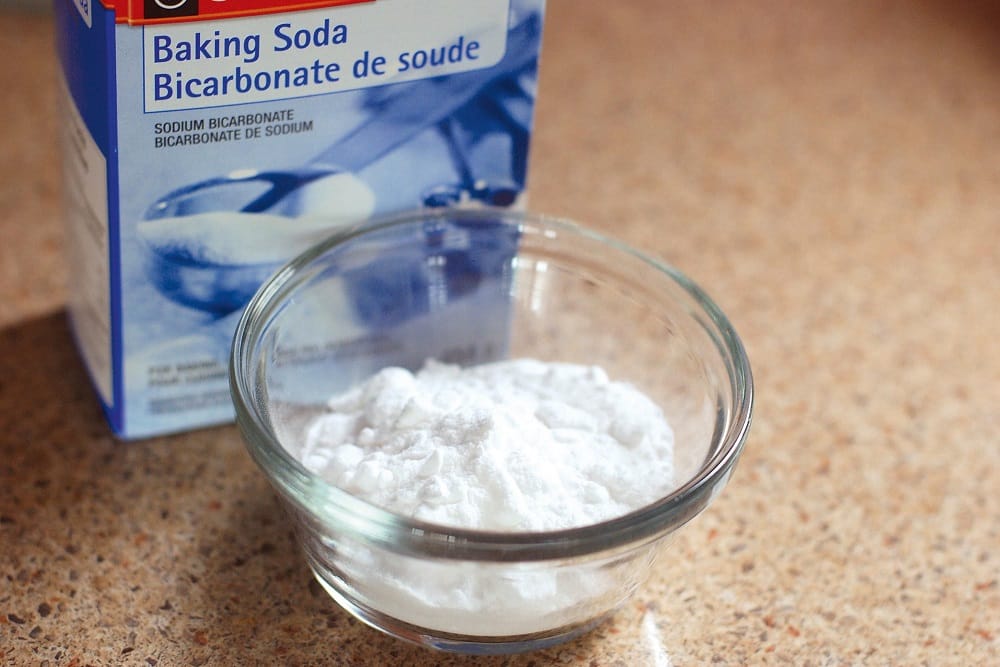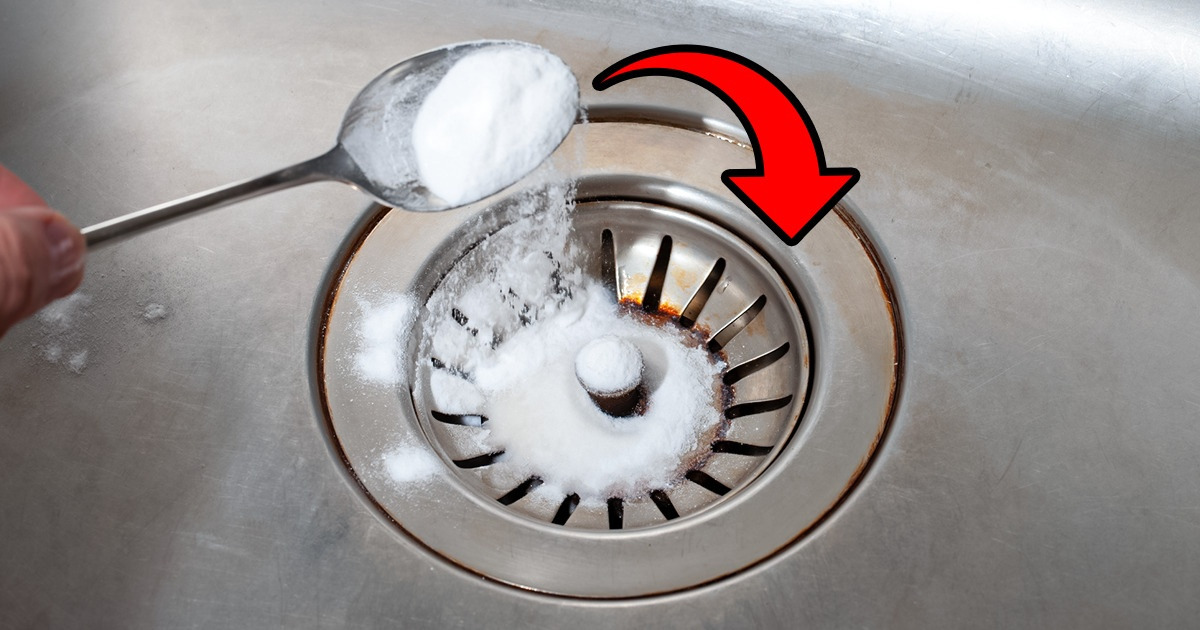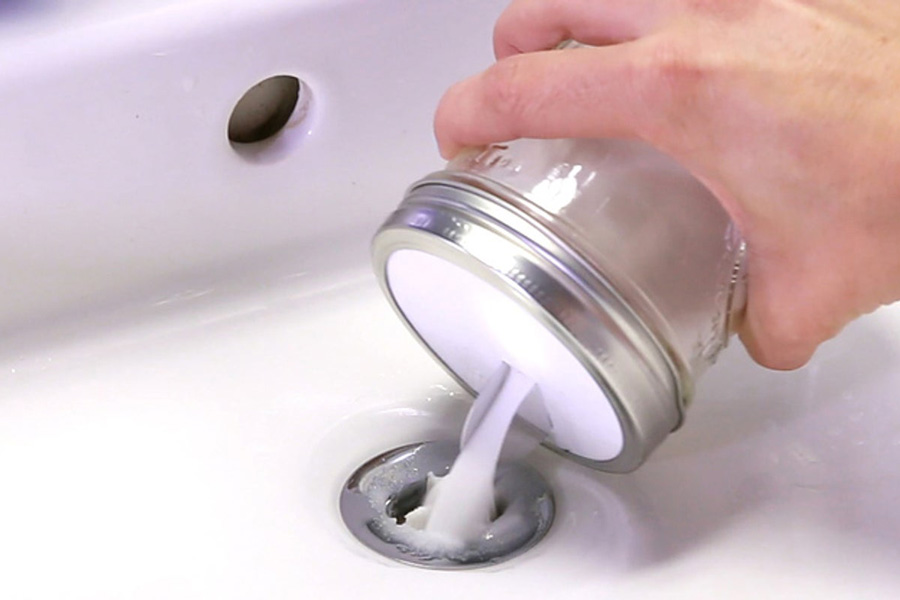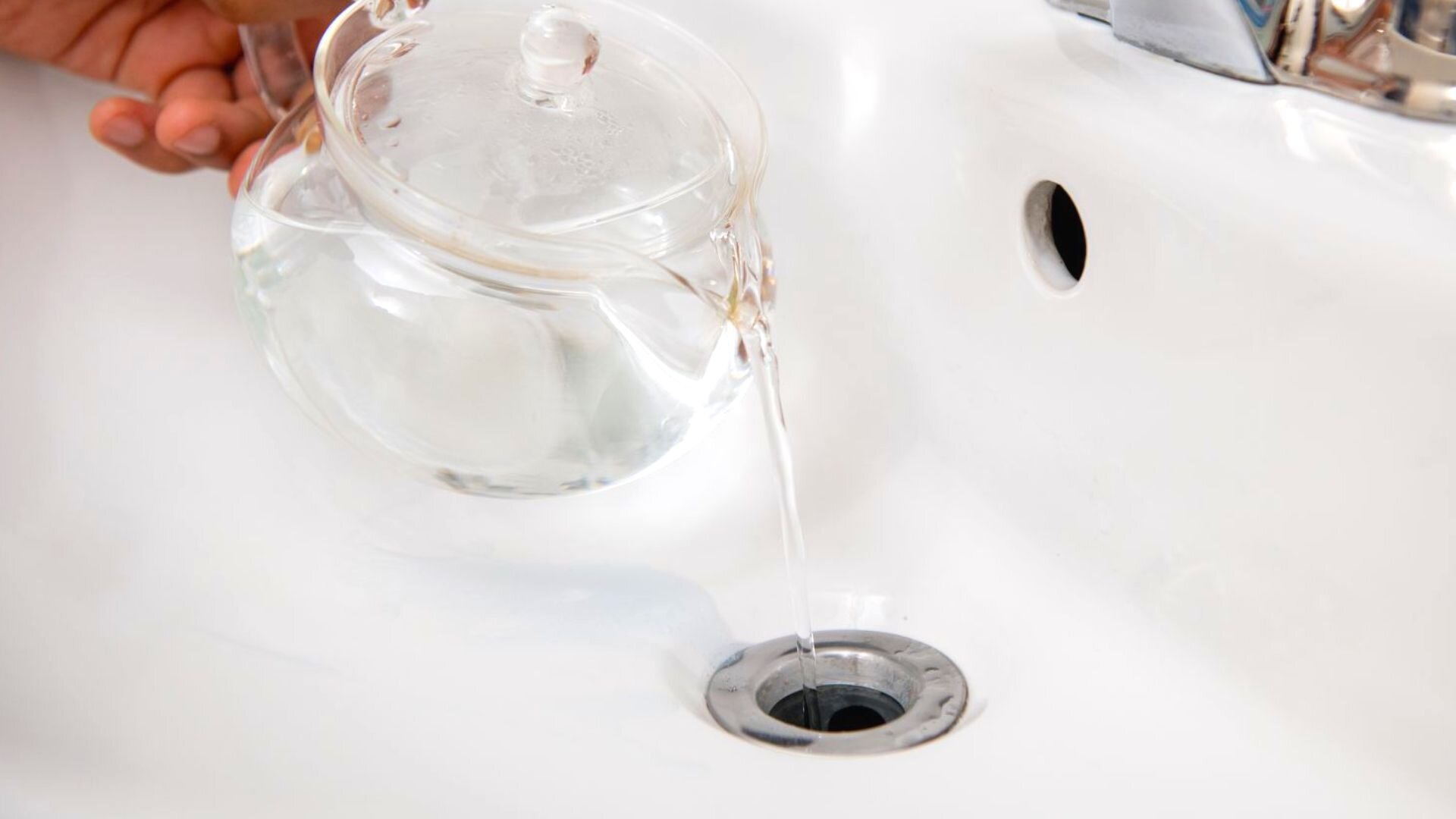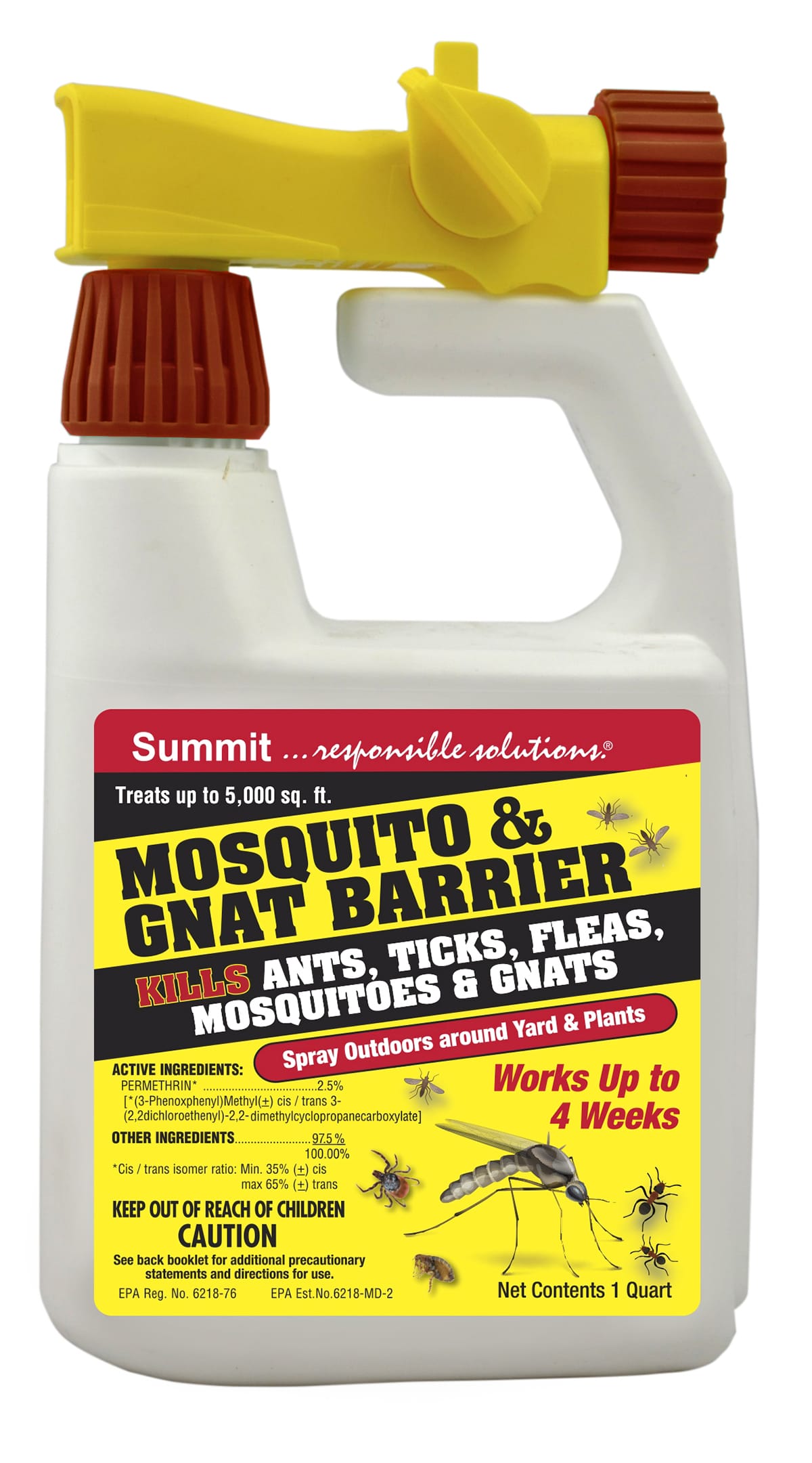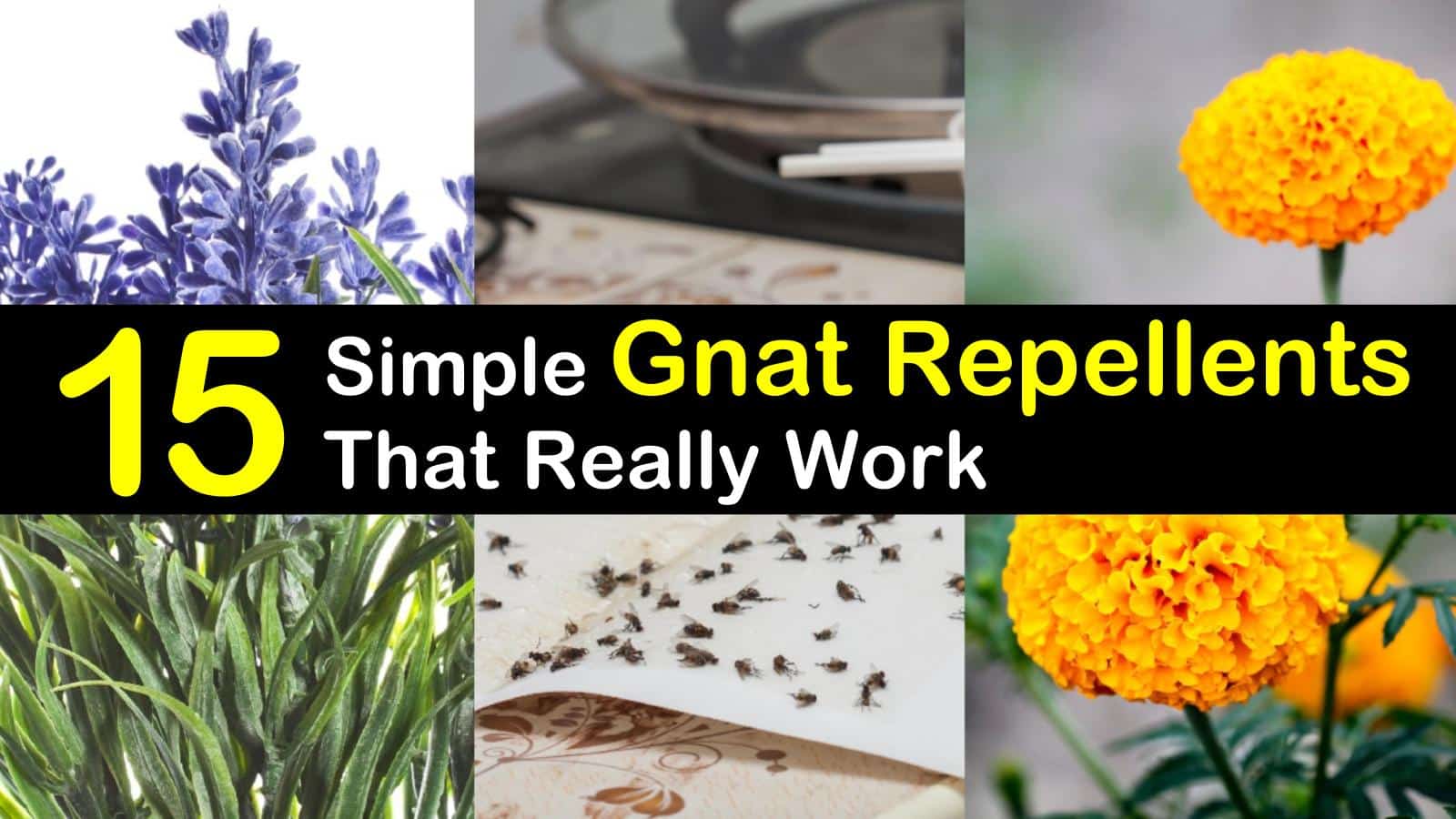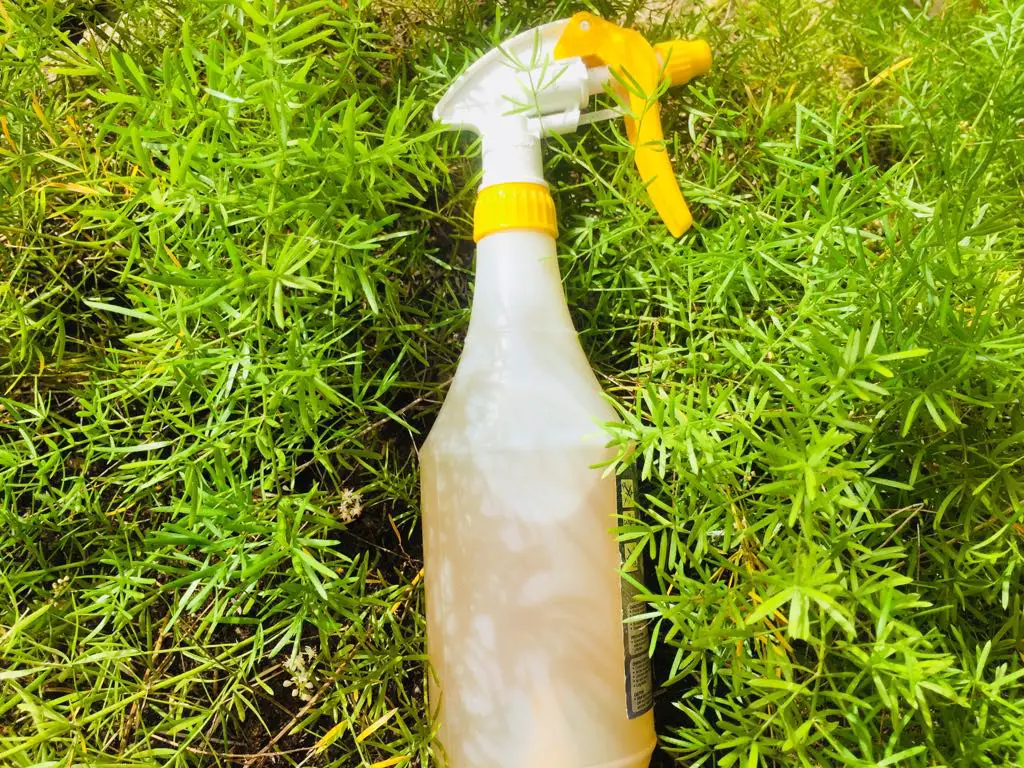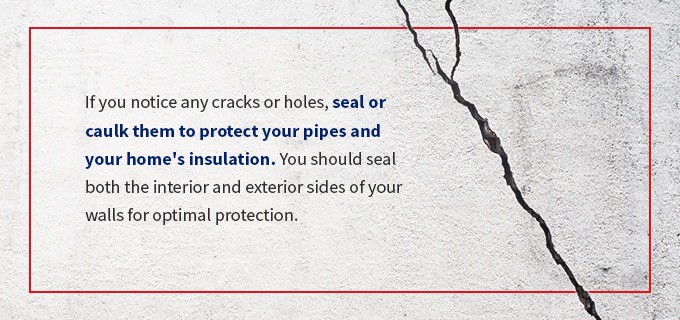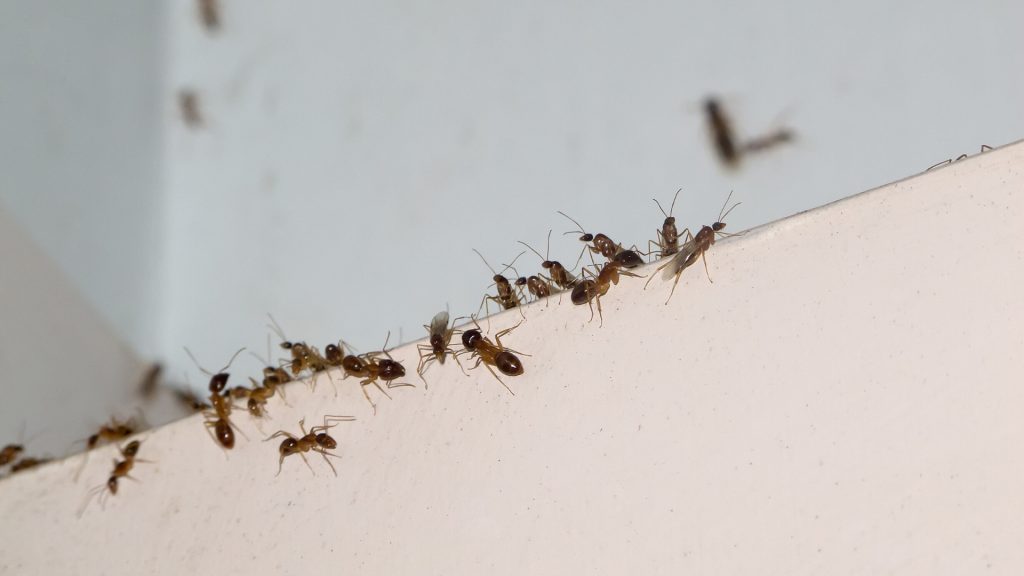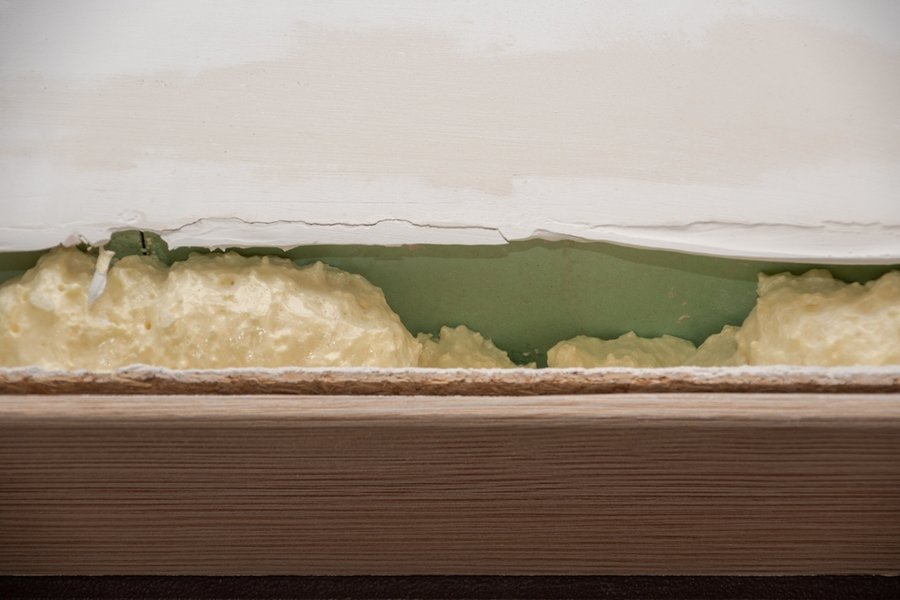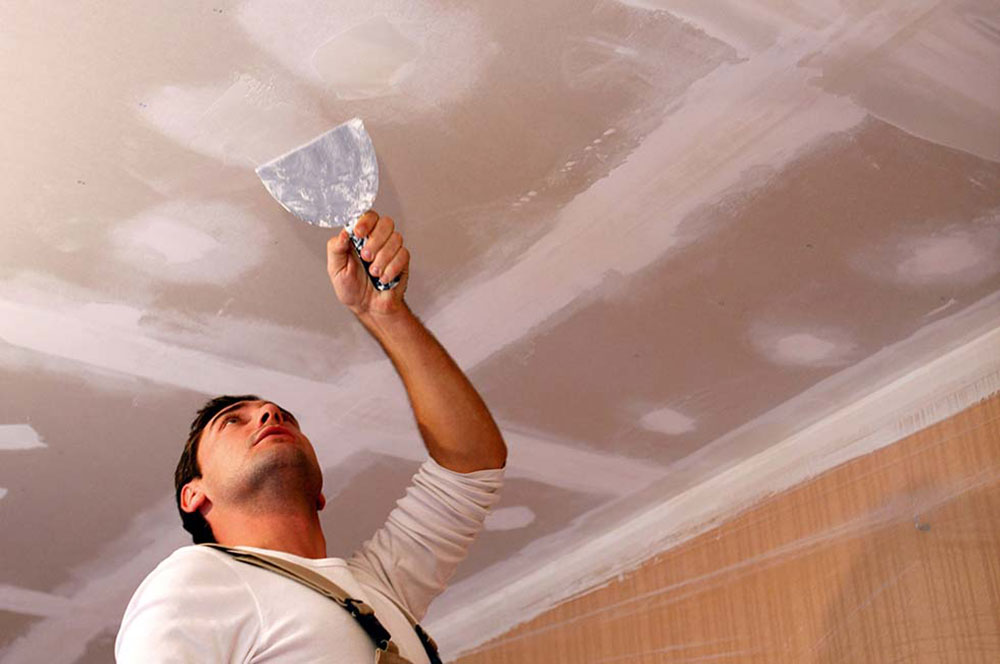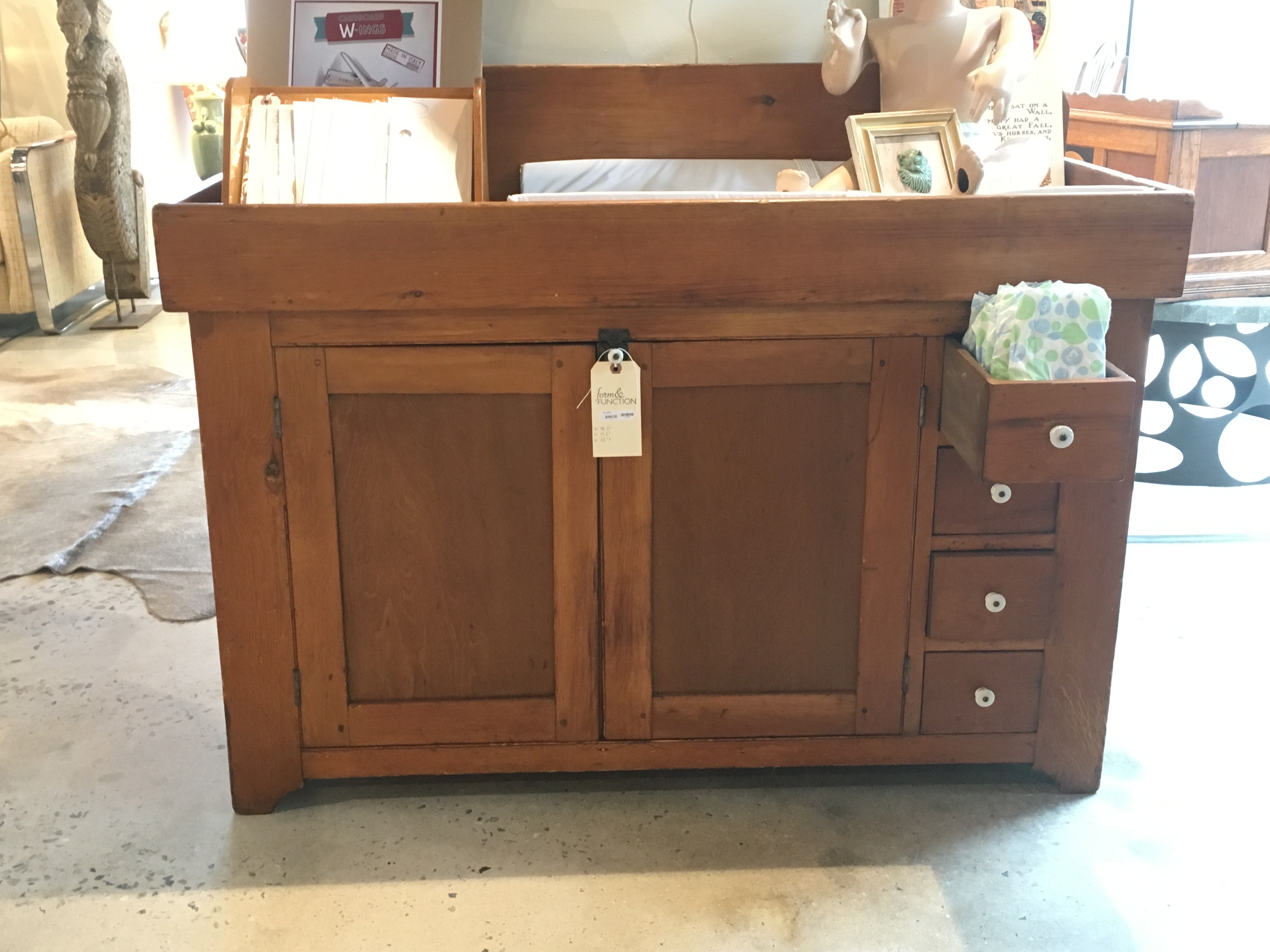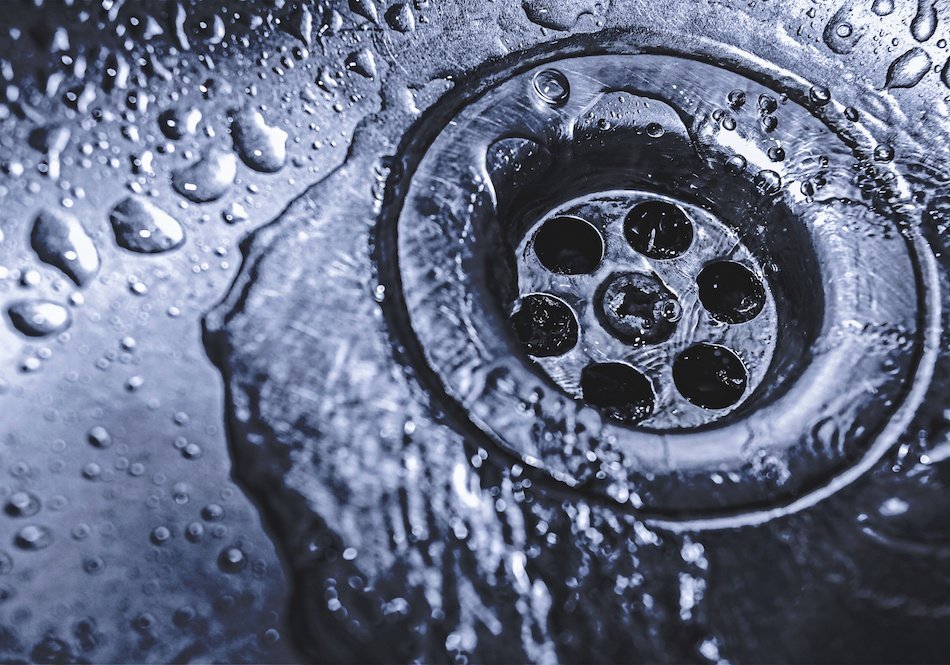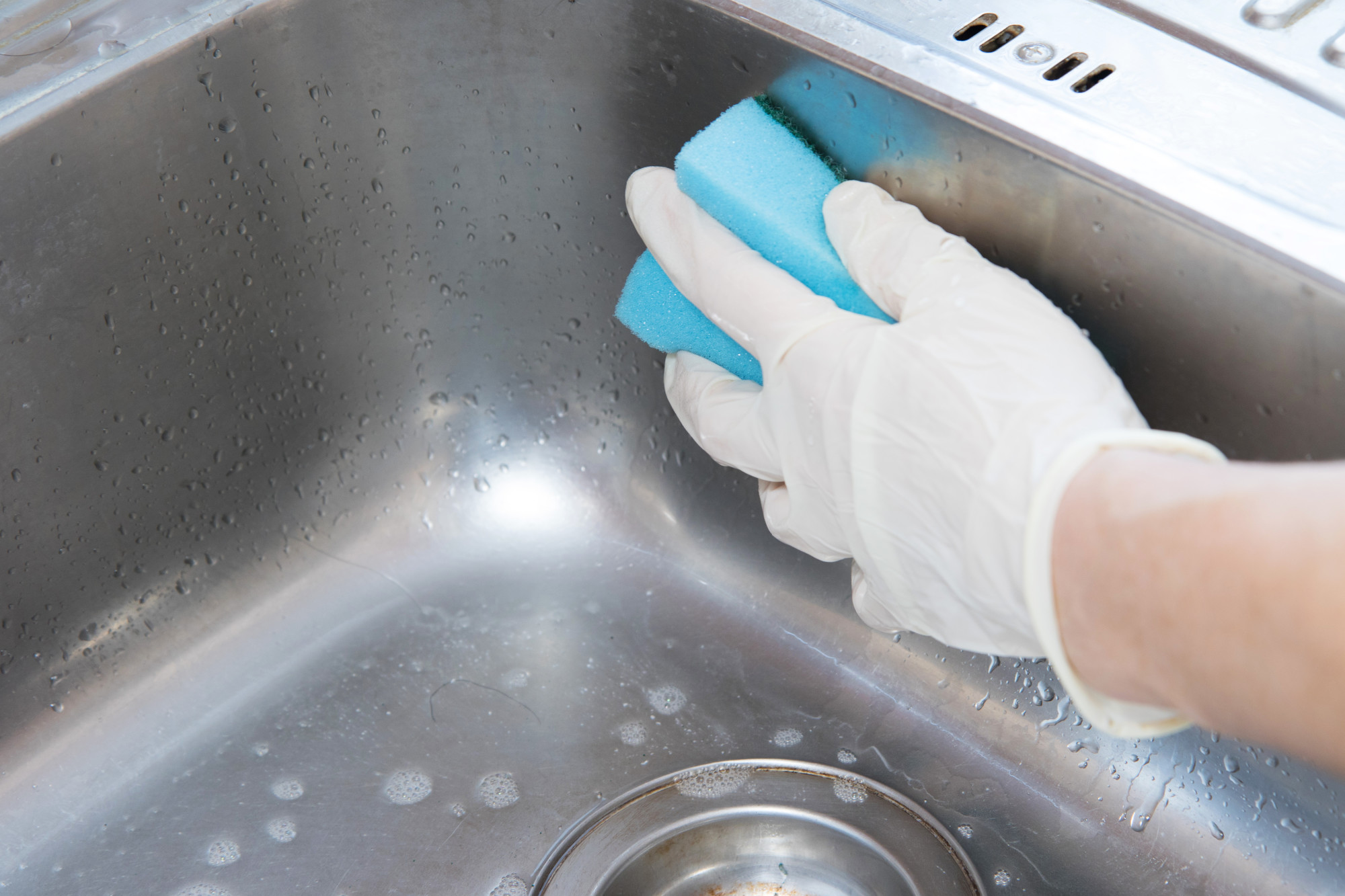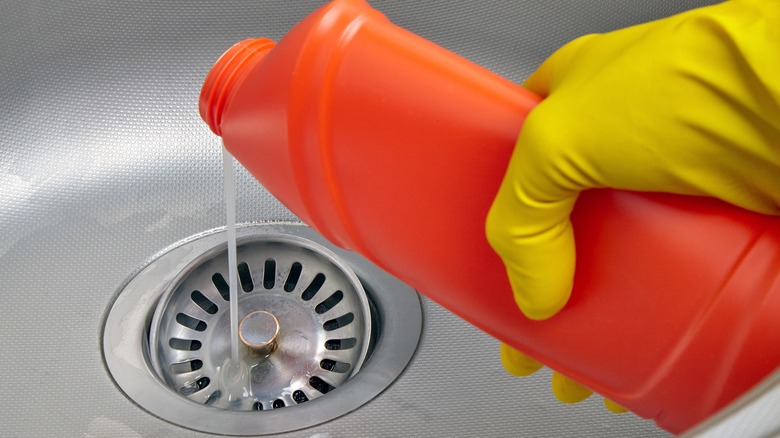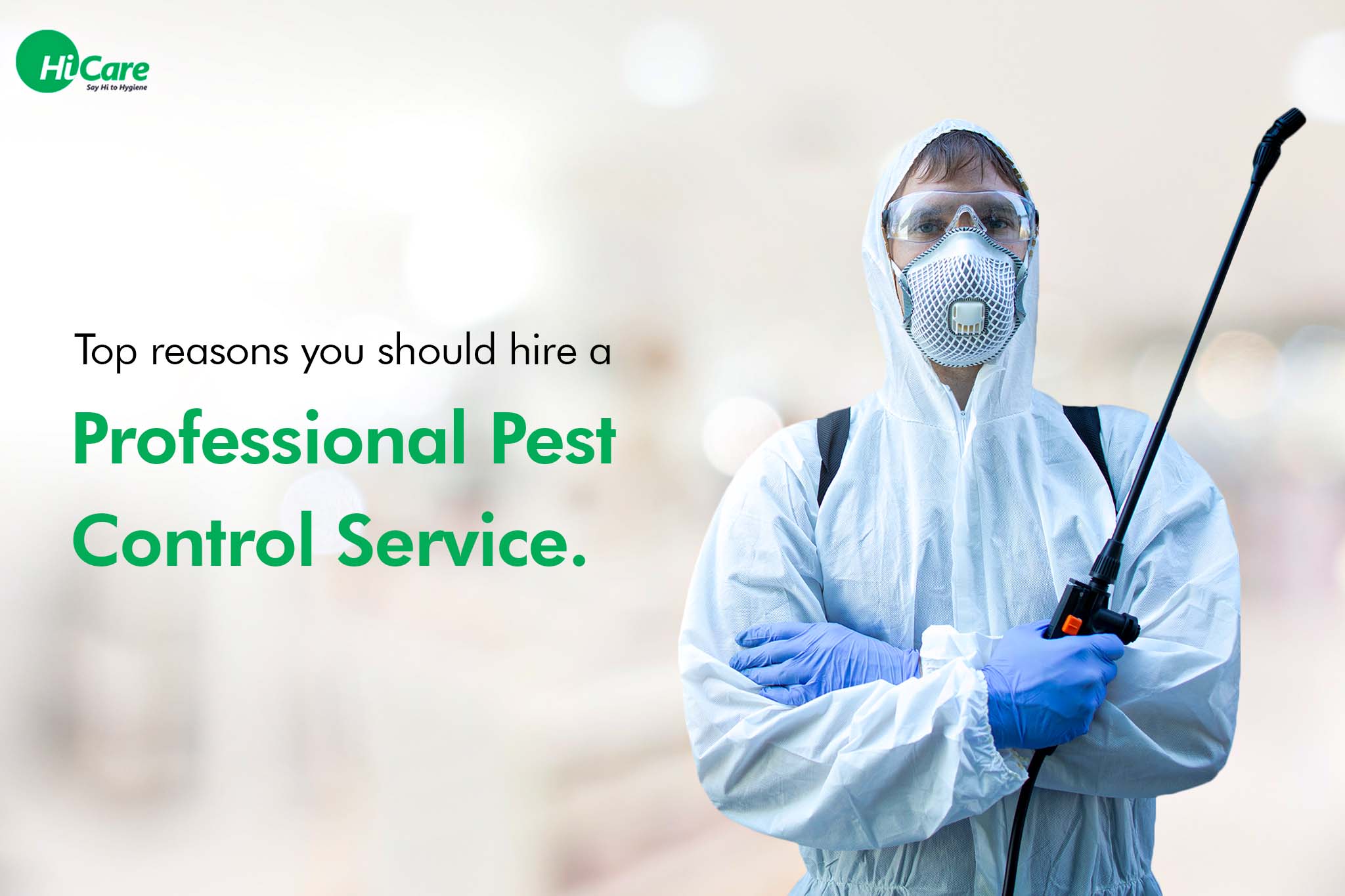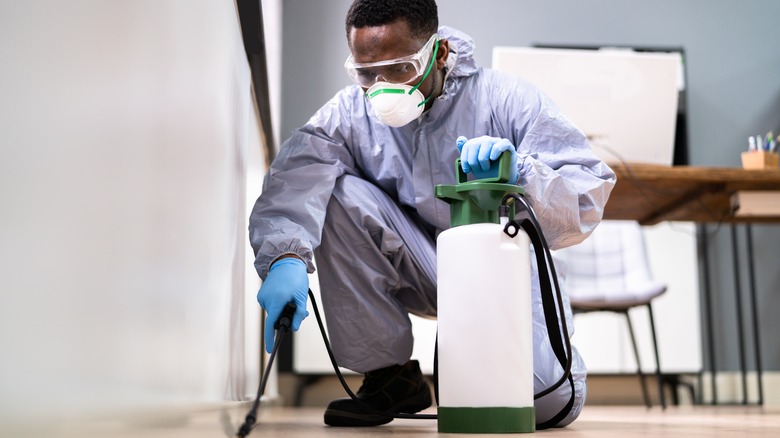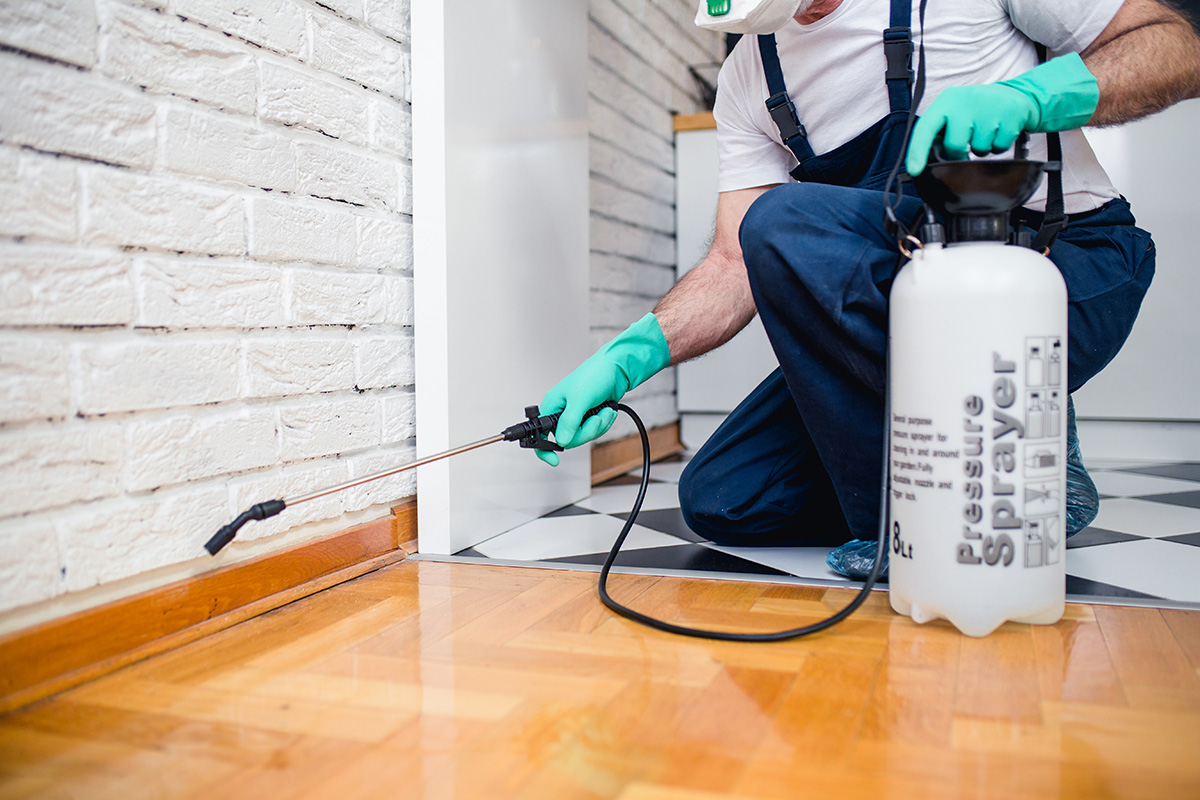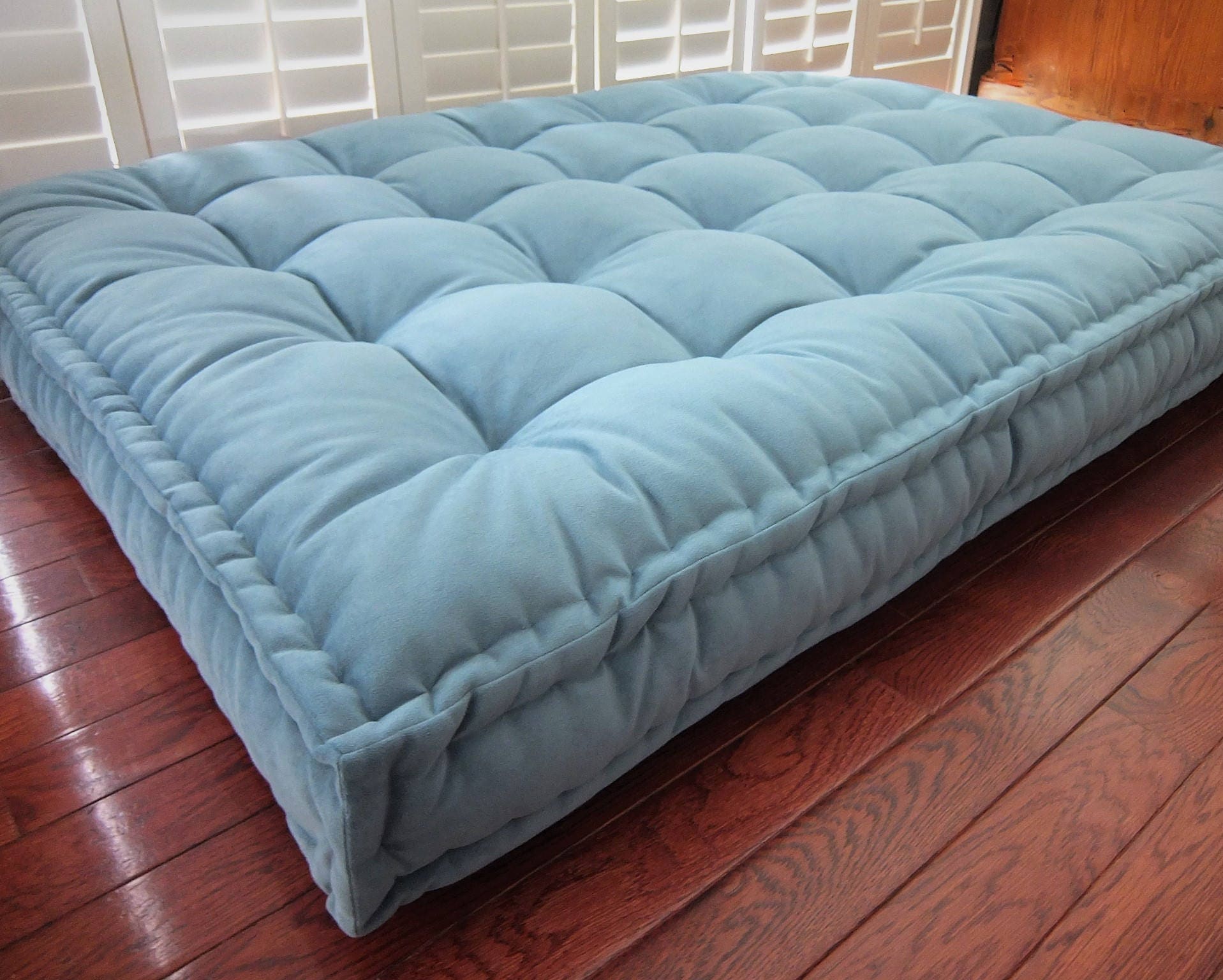1. Clean the sink and drain thoroughly
If you're dealing with gnats in your kitchen sink, the first step is to thoroughly clean the sink and drain. This means removing any food debris, washing the sink with hot soapy water, and using a brush to scrub away any buildup in the drain. Keeping your sink clean and free of organic matter will make it less attractive to gnats.
2. Use a mixture of vinegar and dish soap
A simple and effective homemade solution for getting rid of gnats is to mix equal parts vinegar and dish soap in a bowl or cup. The vinegar will attract the gnats while the dish soap will trap and drown them. Place the mixture near the sink and replace it daily until the gnats are gone.
3. Place a bowl of apple cider vinegar near the sink
Apple cider vinegar is another natural remedy for getting rid of gnats in your kitchen sink. Simply fill a bowl with apple cider vinegar and a few drops of dish soap. The gnats will be attracted to the scent and will drown in the mixture. For best results, add a few drops of lemon essential oil to enhance the smell and make it more appealing to gnats.
4. Use a homemade gnat trap with a plastic bottle and apple cider vinegar
If you have a larger infestation of gnats, you may want to try making a homemade gnat trap using a plastic bottle and apple cider vinegar. Cut the top off of a plastic bottle, flip it upside down, and place it back into the bottle. Fill the bottom of the bottle with apple cider vinegar and add a few drops of dish soap. The gnats will be attracted to the vinegar and will get trapped inside the bottle.
5. Sprinkle baking soda and salt down the drain and pour boiling water
If you suspect that the gnats are breeding in your drain, try using a mixture of baking soda and salt to get rid of them. Mix equal parts baking soda and salt and sprinkle it down the drain. Follow it up with a pot of boiling water to flush out the drain and kill any gnats or larvae hiding in the pipes.
6. Use a commercial gnat spray or insecticide
If the homemade remedies are not working, you may need to use a commercial gnat spray or insecticide. Look for products that specifically mention gnats on the label and follow the instructions carefully. Keep in mind that these products may contain chemicals, so be sure to use them in a well-ventilated area and keep them out of reach of children and pets.
7. Seal any cracks or openings in the sink or pipes
Gnats can easily enter your home through small cracks and openings in your sink or pipes. Inspect your sink and surrounding area for any potential entry points and seal them off with caulk or putty. This will not only prevent gnats from entering your home, but it will also help with overall pest control.
8. Keep the sink and surrounding area clean and dry
Gnats are attracted to moisture and organic matter, so it's important to keep your sink and surrounding area clean and dry. Wipe down your sink after each use and fix any leaks or standing water. Also, be sure to empty and clean your garbage disposal regularly to prevent any buildup that may attract gnats.
9. Use a drain cleaner to remove any buildup in the pipes
If you suspect that the gnats are breeding in your drain, using a drain cleaner can help remove any buildup and prevent future infestations. Look for a drain cleaner specifically made for organic matter and follow the instructions carefully. It's important to note that drain cleaners can be harmful if not used properly, so take precautions and use gloves and goggles.
10. Consult a professional pest control service if the problem persists
If you've tried all of the above methods and the gnats are still a problem, it may be time to consult a professional pest control service. They will be able to assess the situation and come up with a specialized plan to get rid of the gnats in your kitchen sink. They may also be able to identify any underlying issues that are attracting the gnats and provide solutions to prevent future infestations.
Dealing with gnats in your kitchen sink can be frustrating, but with these tips, you can effectively get rid of them and prevent them from coming back. Remember to keep your sink and surrounding area clean and dry, use natural remedies when possible, and consult a professional if needed. With a little effort, you can have a gnat-free kitchen in no time.
Why Gnats are Attracted to Kitchen Sinks and How to Get Rid of Them
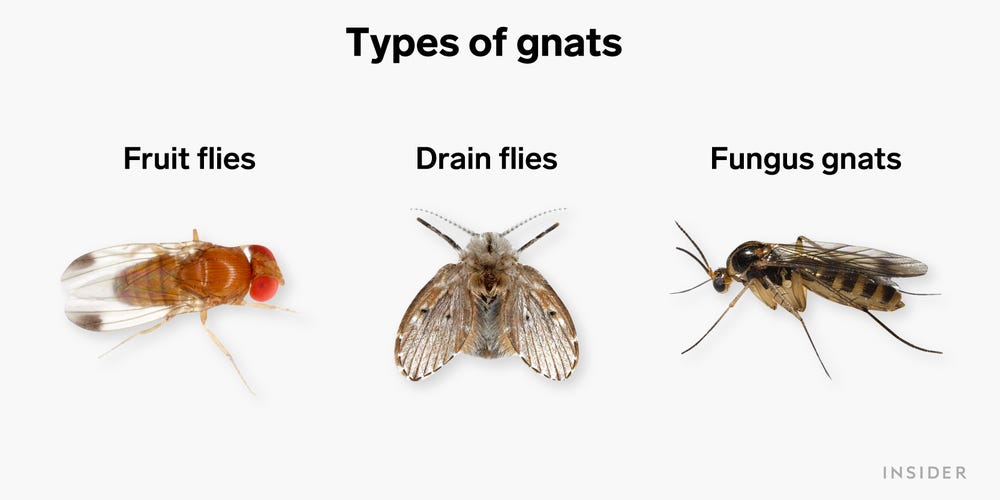
The Annoying Problem of Gnats in the Kitchen Sink
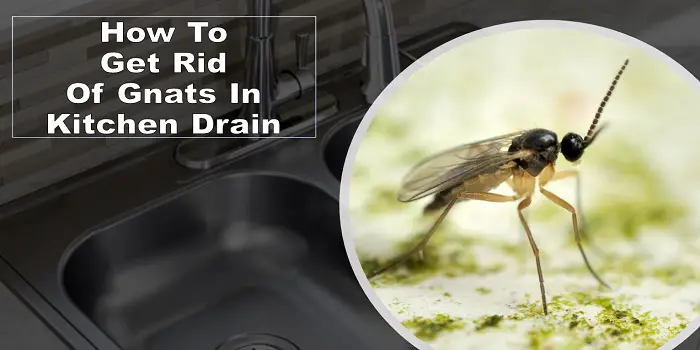 Gnats, also known as fruit flies, are a common household nuisance and can often be found buzzing around your kitchen sink. These tiny insects are attracted to moist and decaying organic matter, making your kitchen sink the perfect breeding ground for them. Not only are they annoying, but they can also contaminate food and spread bacteria. So, how do you get rid of them and prevent them from coming back? We've got you covered with some effective solutions.
Gnats, also known as fruit flies, are a common household nuisance and can often be found buzzing around your kitchen sink. These tiny insects are attracted to moist and decaying organic matter, making your kitchen sink the perfect breeding ground for them. Not only are they annoying, but they can also contaminate food and spread bacteria. So, how do you get rid of them and prevent them from coming back? We've got you covered with some effective solutions.
Fixing Leaks and Eliminating Moisture
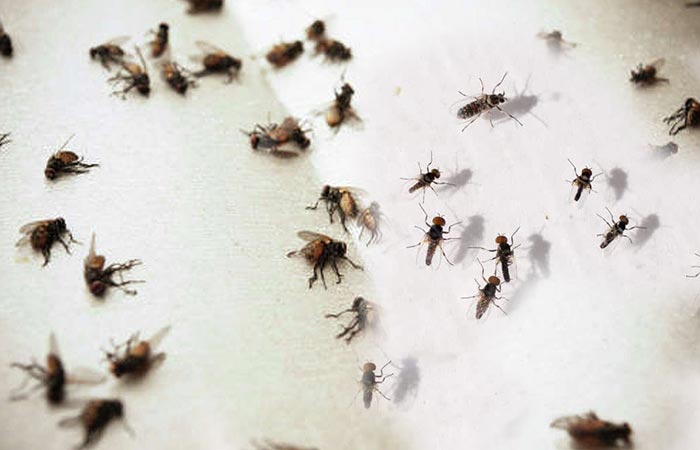 The first step to getting rid of gnats in your kitchen sink is to identify and fix any leaks or standing water that may be attracting them. Check for any leaks in your sink pipes or faucets and repair them immediately. Gnats are drawn to moisture, so make sure to wipe down your sink and keep it dry after use. You can also place a small fan near the sink to keep the area well-ventilated and prevent moisture buildup.
The first step to getting rid of gnats in your kitchen sink is to identify and fix any leaks or standing water that may be attracting them. Check for any leaks in your sink pipes or faucets and repair them immediately. Gnats are drawn to moisture, so make sure to wipe down your sink and keep it dry after use. You can also place a small fan near the sink to keep the area well-ventilated and prevent moisture buildup.
Cleaning and Disinfecting the Sink
 Regularly cleaning and disinfecting your kitchen sink is crucial in keeping gnats away. Use a mixture of hot water and
apple cider vinegar
to deep clean your sink and drain. The strong scent of vinegar will repel gnats and kill any existing larvae. You can also use a solution of dish soap and water to clean the sink and surrounding areas. Make sure to scrub away any food particles or residue that may be attracting gnats.
Regularly cleaning and disinfecting your kitchen sink is crucial in keeping gnats away. Use a mixture of hot water and
apple cider vinegar
to deep clean your sink and drain. The strong scent of vinegar will repel gnats and kill any existing larvae. You can also use a solution of dish soap and water to clean the sink and surrounding areas. Make sure to scrub away any food particles or residue that may be attracting gnats.
Sealing Cracks and Openings
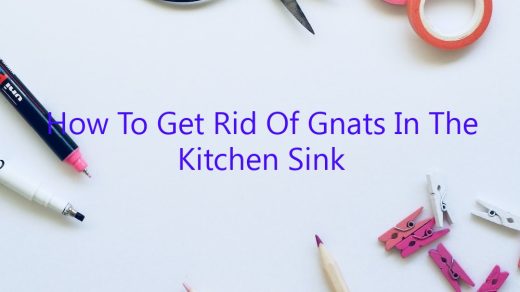 Gnats can easily enter your home through small cracks and openings, so it's important to seal them off. Check for any gaps around your sink pipes or windows and seal them with caulk or weather stripping. This will not only keep gnats out, but it will also help with energy efficiency in your home.
Gnats can easily enter your home through small cracks and openings, so it's important to seal them off. Check for any gaps around your sink pipes or windows and seal them with caulk or weather stripping. This will not only keep gnats out, but it will also help with energy efficiency in your home.
Using Natural Repellents
 If you prefer to use natural methods to get rid of gnats, there are a few options you can try.
Essential oils
such as peppermint, citronella, and lavender are known to repel gnats. Mix a few drops of your preferred oil with water and spray it around your sink and drain. You can also place a few drops of oil on a cotton ball and leave it near the sink. Another natural solution is to make a trap using a mixture of apple cider vinegar, dish soap, and a piece of ripe fruit. The gnats will be attracted to the scent, but the soap will trap them and prevent them from breeding.
If you prefer to use natural methods to get rid of gnats, there are a few options you can try.
Essential oils
such as peppermint, citronella, and lavender are known to repel gnats. Mix a few drops of your preferred oil with water and spray it around your sink and drain. You can also place a few drops of oil on a cotton ball and leave it near the sink. Another natural solution is to make a trap using a mixture of apple cider vinegar, dish soap, and a piece of ripe fruit. The gnats will be attracted to the scent, but the soap will trap them and prevent them from breeding.
Preventing Future Infestations
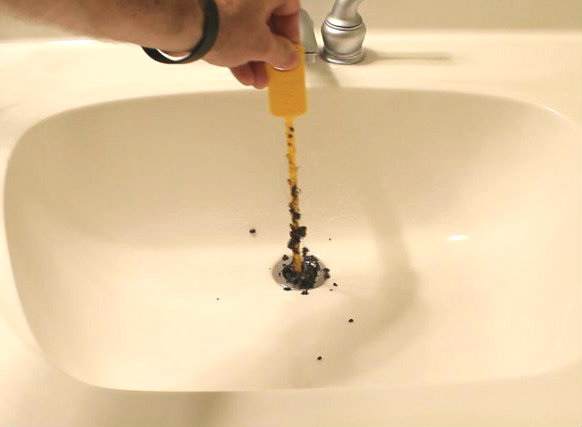 Now that you've gotten rid of the gnats in your kitchen sink, it's important to take preventive measures to avoid future infestations. Make sure to regularly clean your sink and dispose of any decaying food or organic matter. Keep your kitchen trash can covered and take out the trash frequently. You can also use a drain screen to prevent any food particles from going down the drain.
In conclusion, with these simple solutions, you can effectively get rid of gnats in your kitchen sink and prevent them from coming back. Remember to fix any leaks, keep your sink clean and dry, seal off any openings, and use natural repellents to keep these pesky insects at bay. Say goodbye to the annoying buzz of gnats in your kitchen and hello to a clean and gnat-free sink.
Now that you've gotten rid of the gnats in your kitchen sink, it's important to take preventive measures to avoid future infestations. Make sure to regularly clean your sink and dispose of any decaying food or organic matter. Keep your kitchen trash can covered and take out the trash frequently. You can also use a drain screen to prevent any food particles from going down the drain.
In conclusion, with these simple solutions, you can effectively get rid of gnats in your kitchen sink and prevent them from coming back. Remember to fix any leaks, keep your sink clean and dry, seal off any openings, and use natural repellents to keep these pesky insects at bay. Say goodbye to the annoying buzz of gnats in your kitchen and hello to a clean and gnat-free sink.




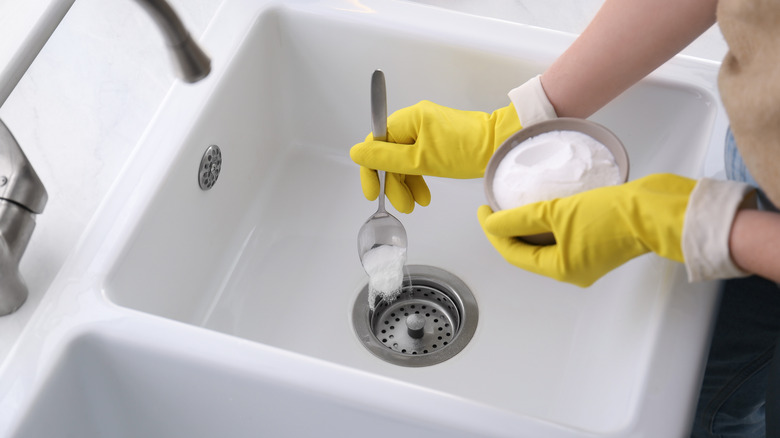
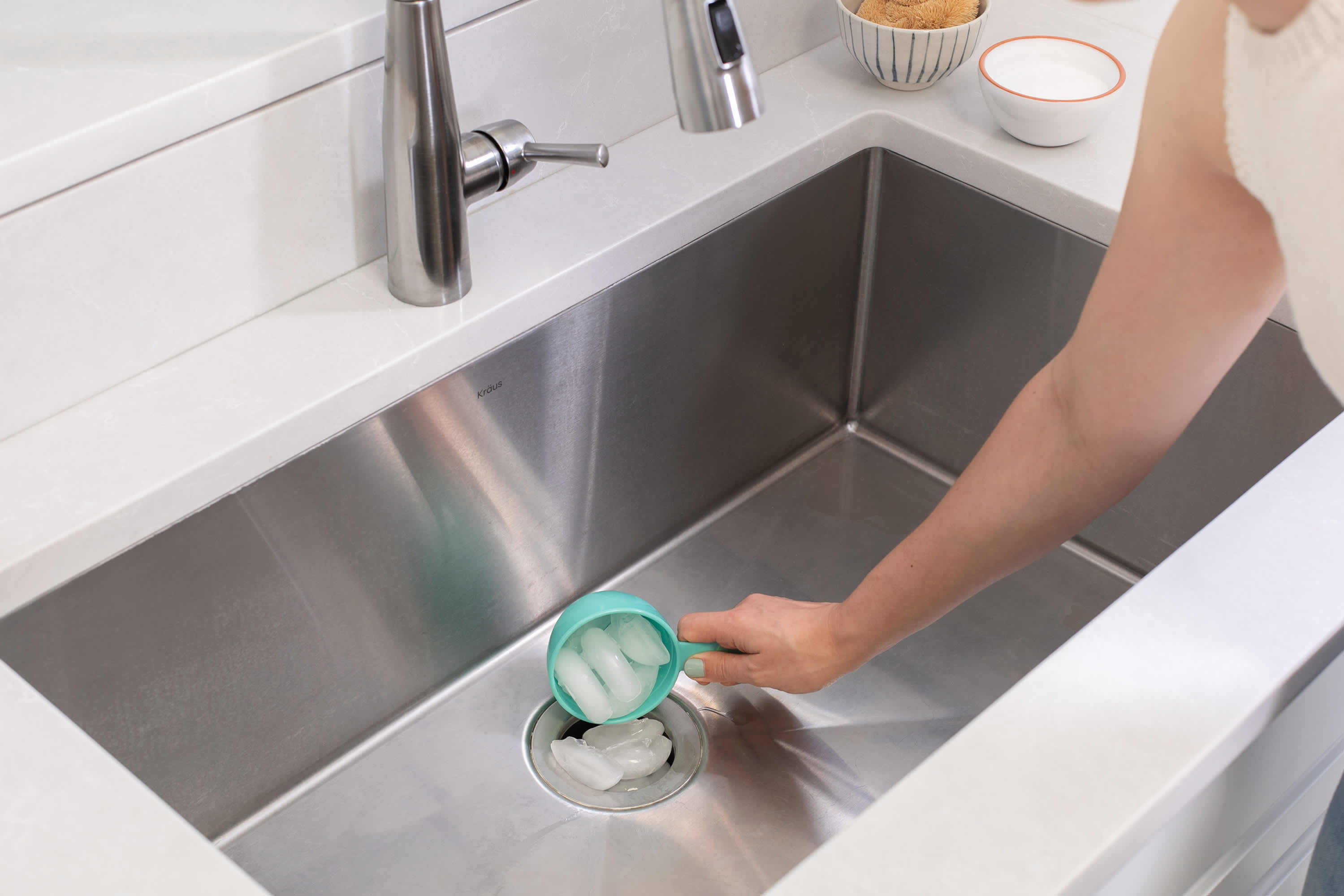
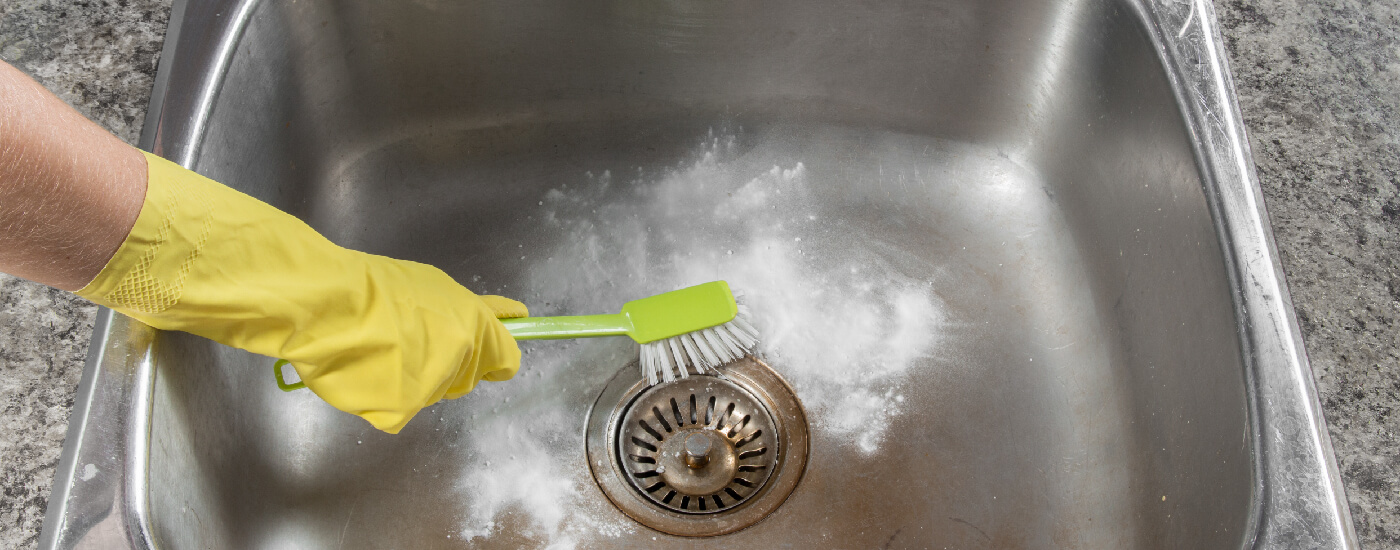









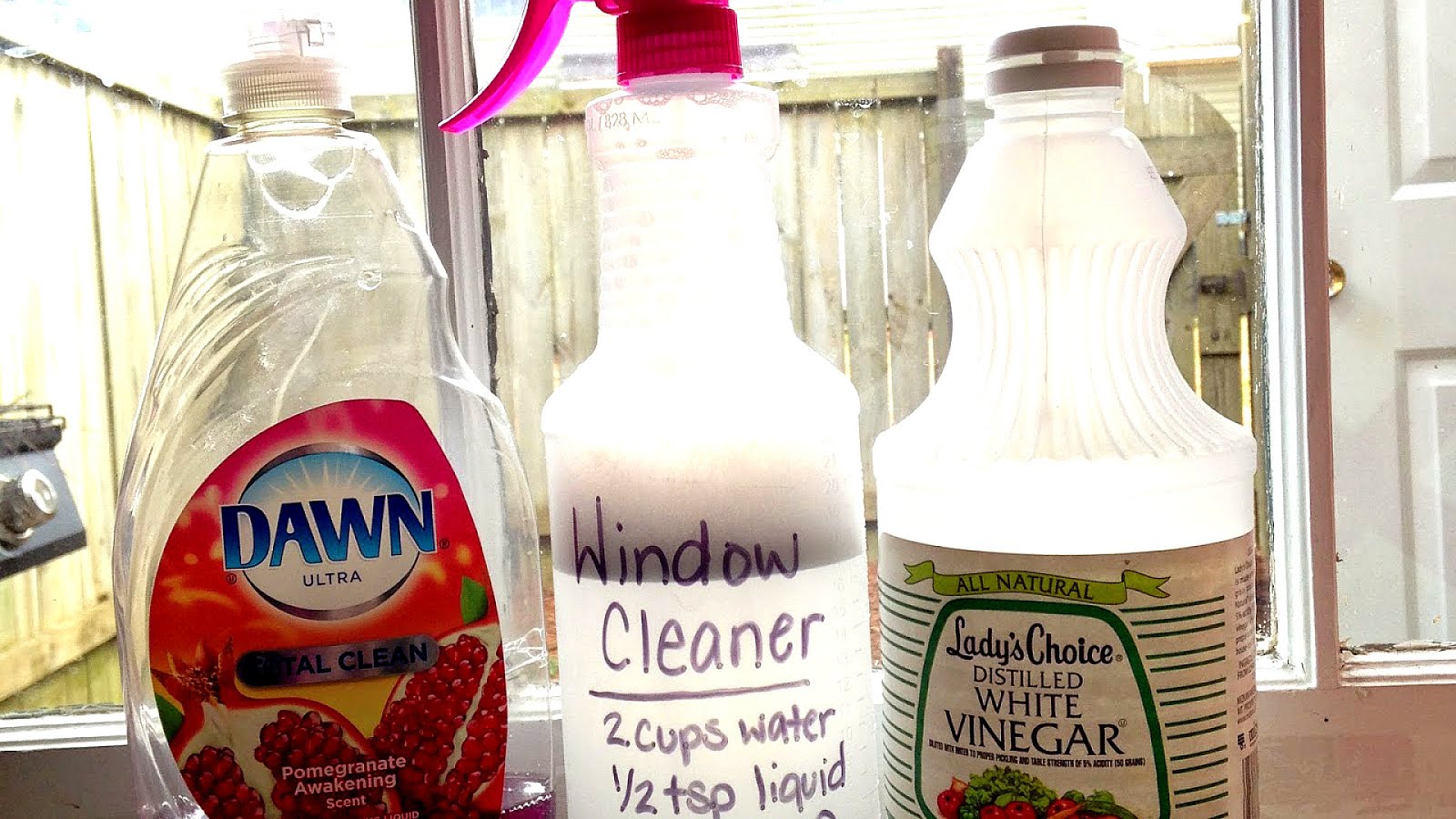

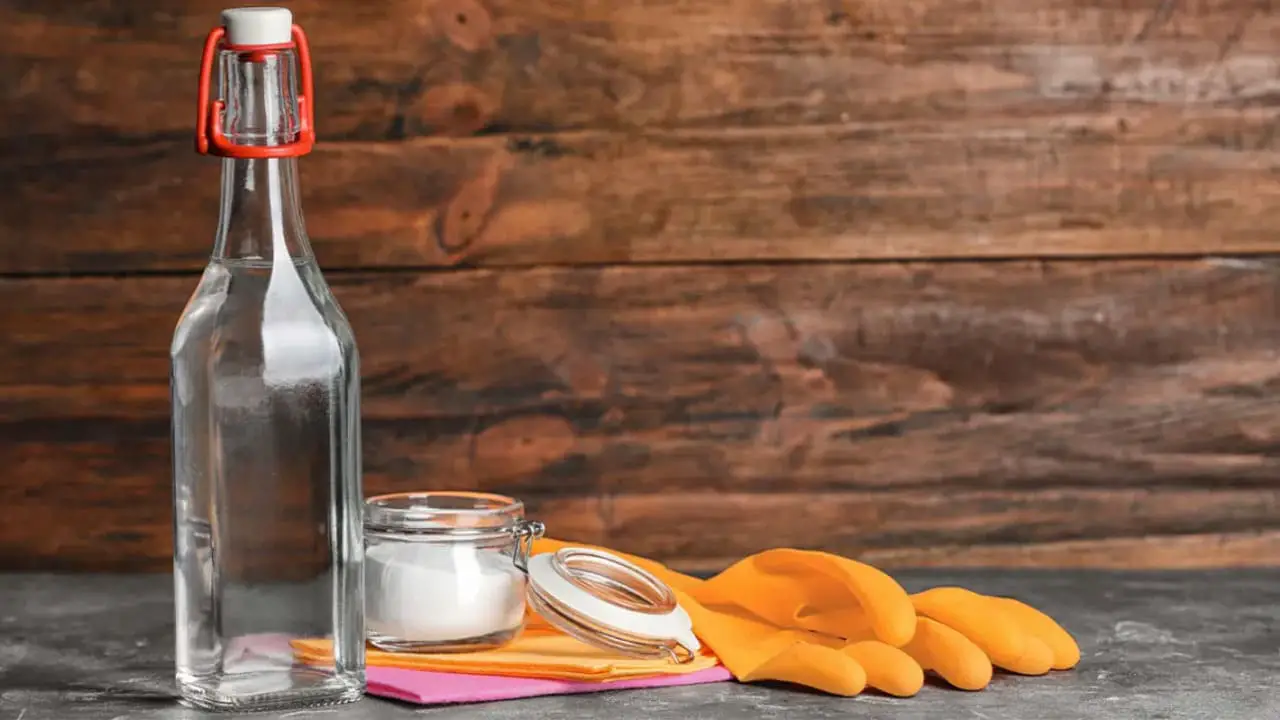

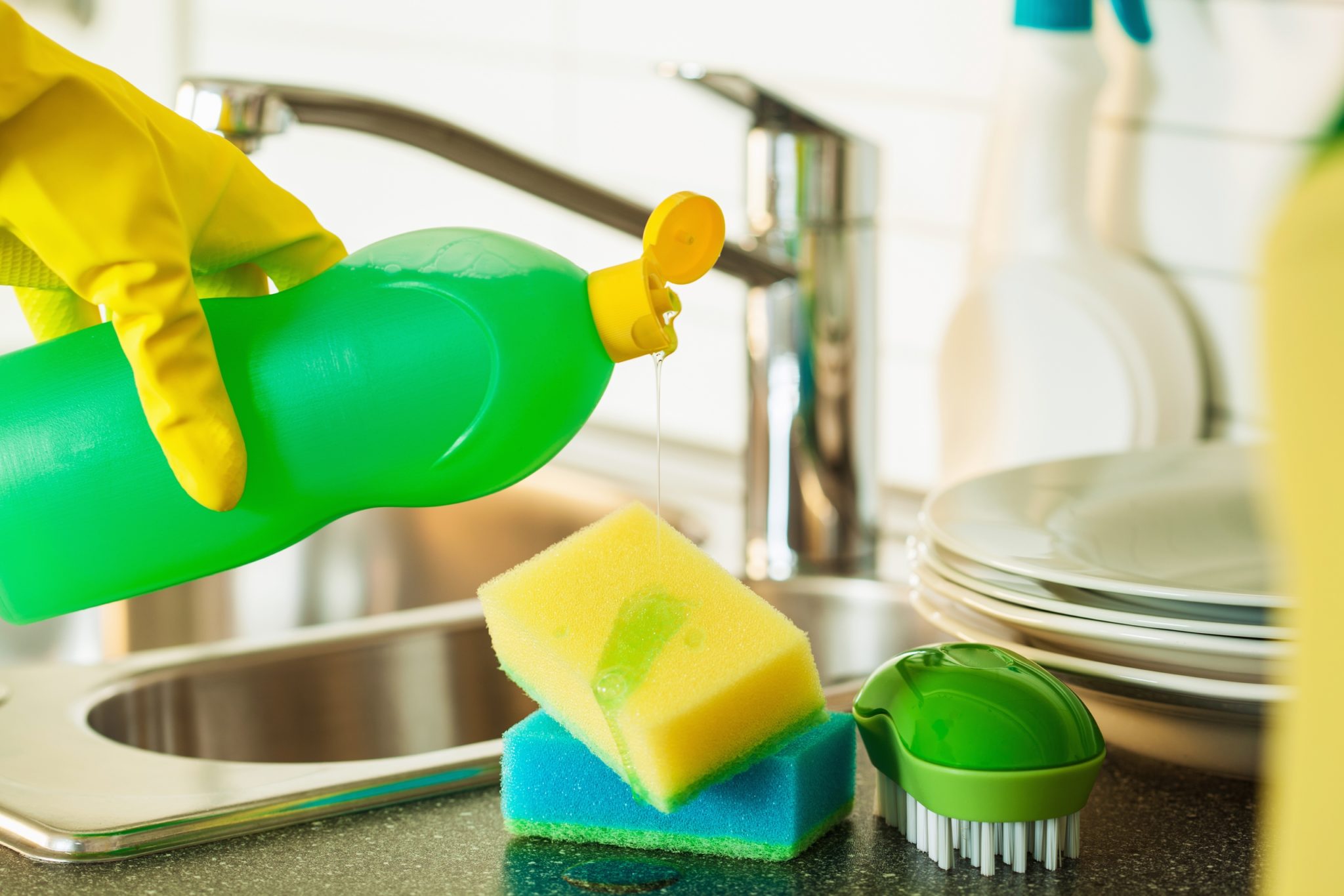
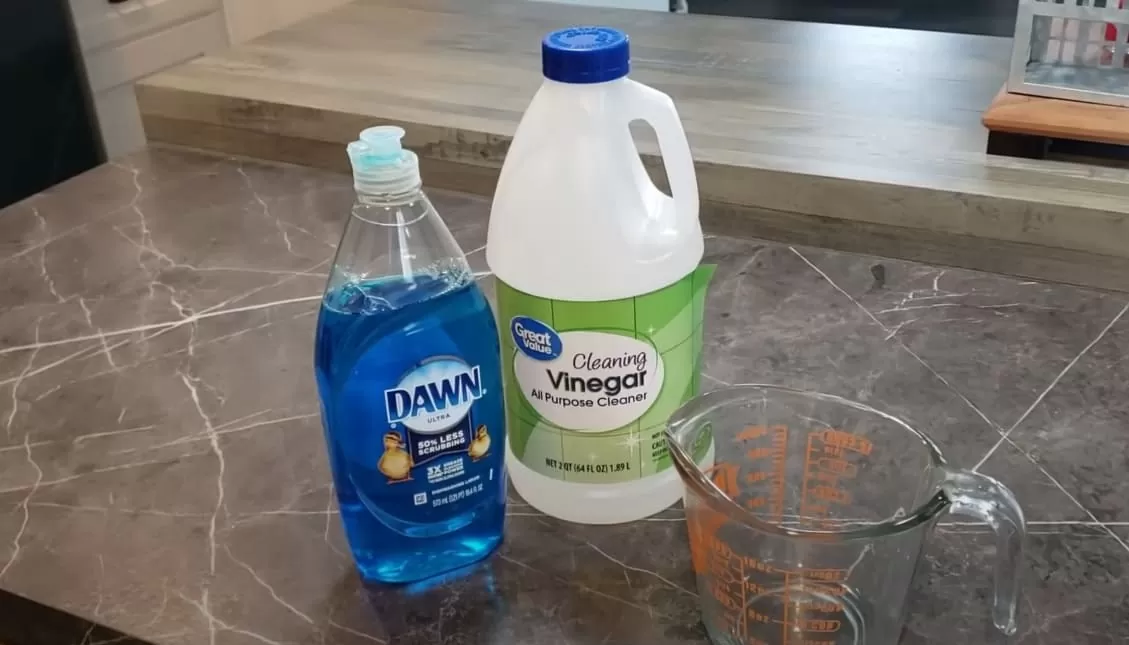



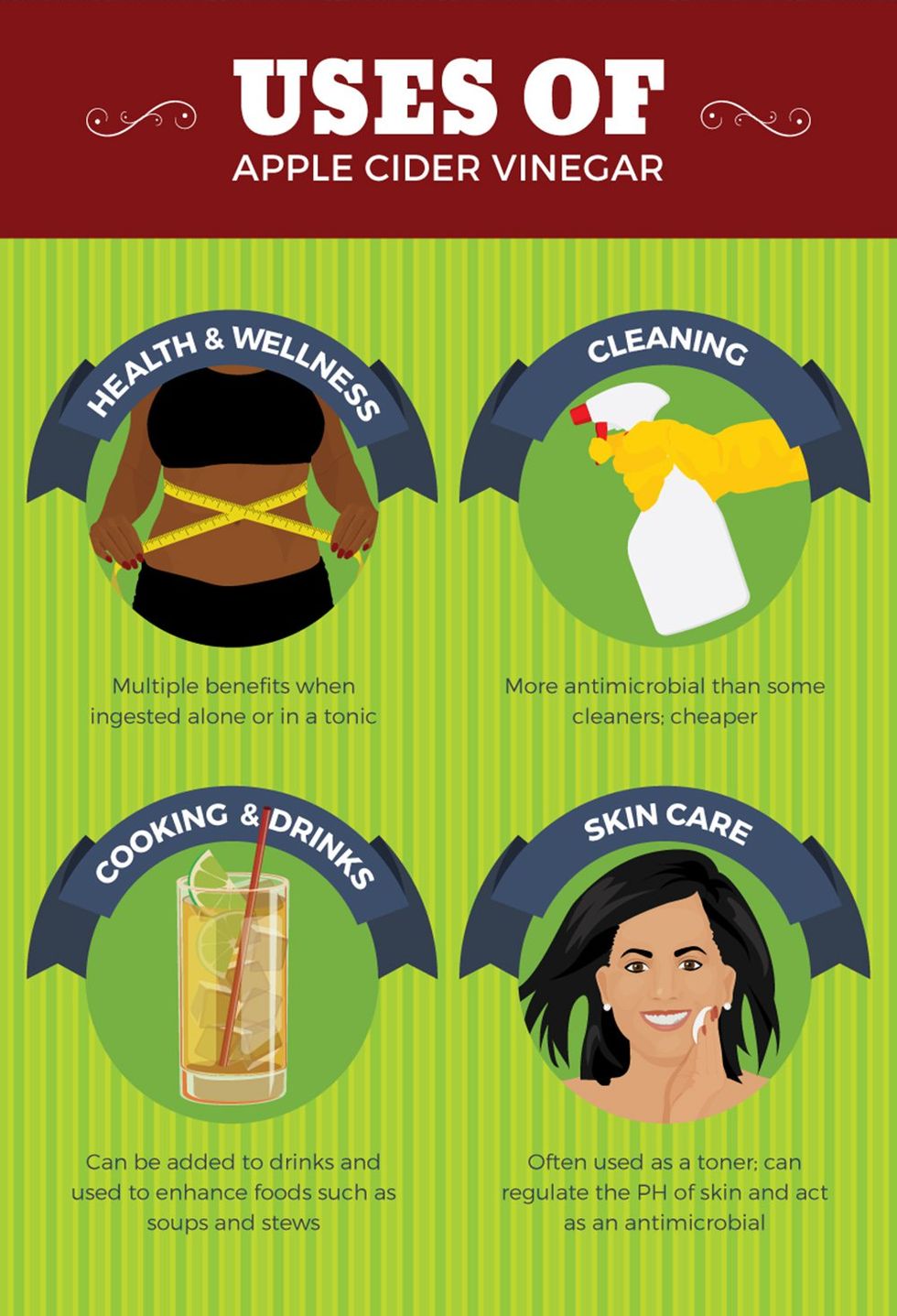











:max_bytes(150000):strip_icc()/how-to-make-a-fly-trap-1389066-f0b489e0309a4a68ab10fa779d556199.png)

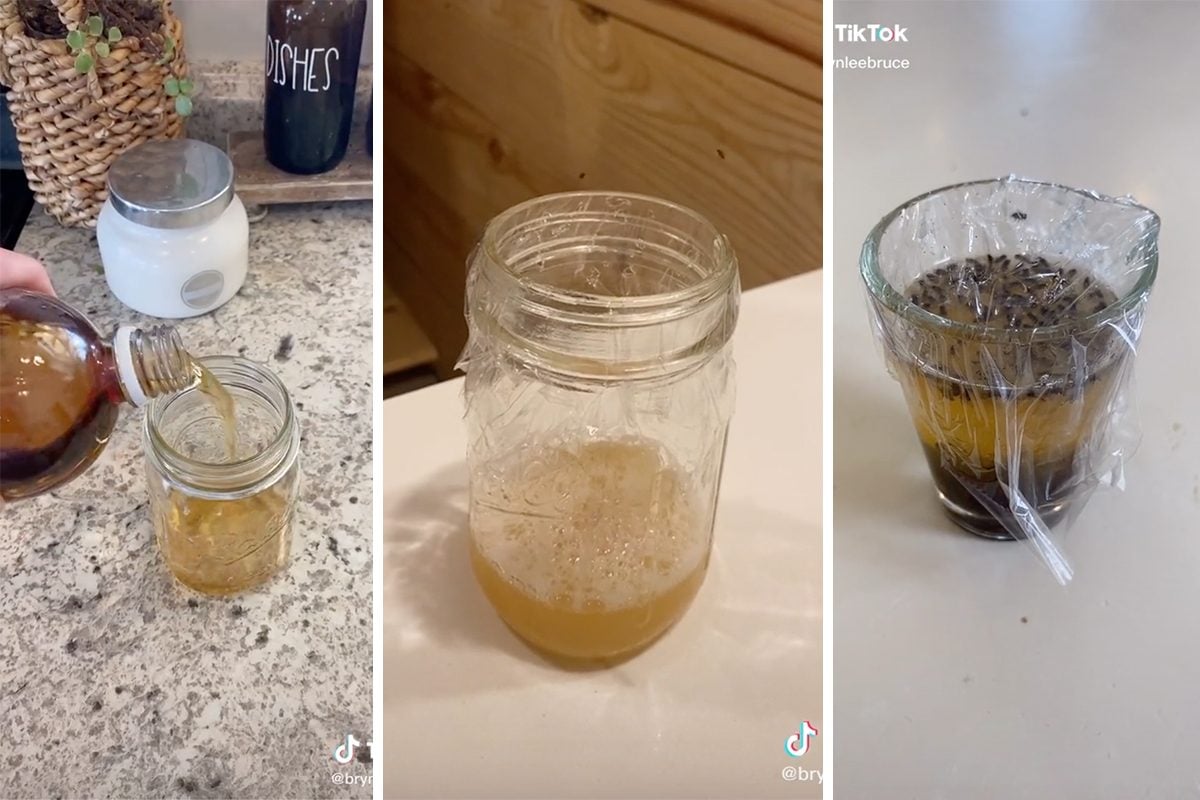
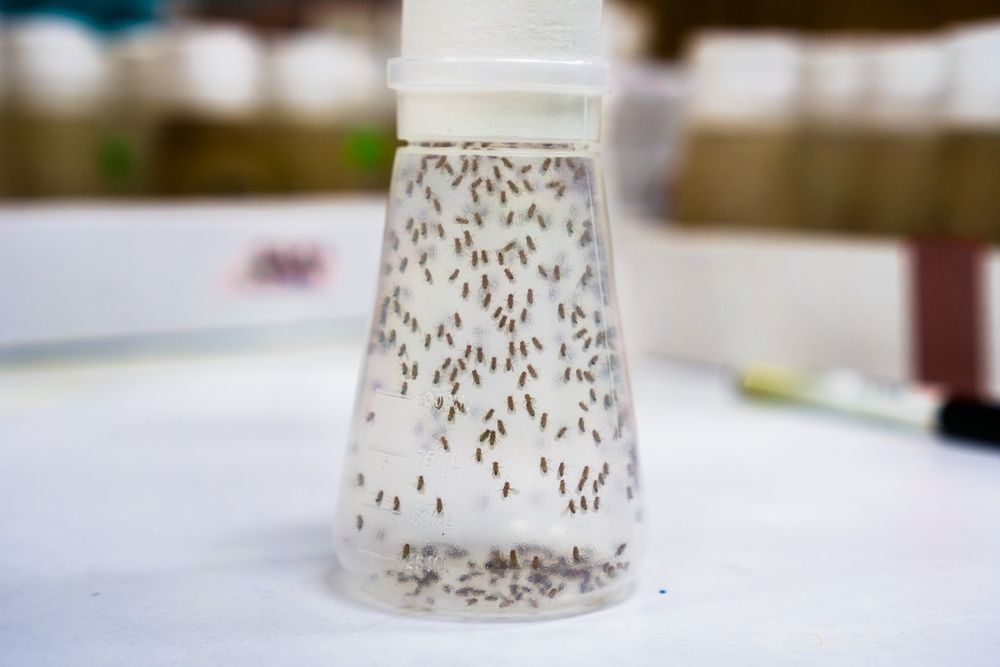
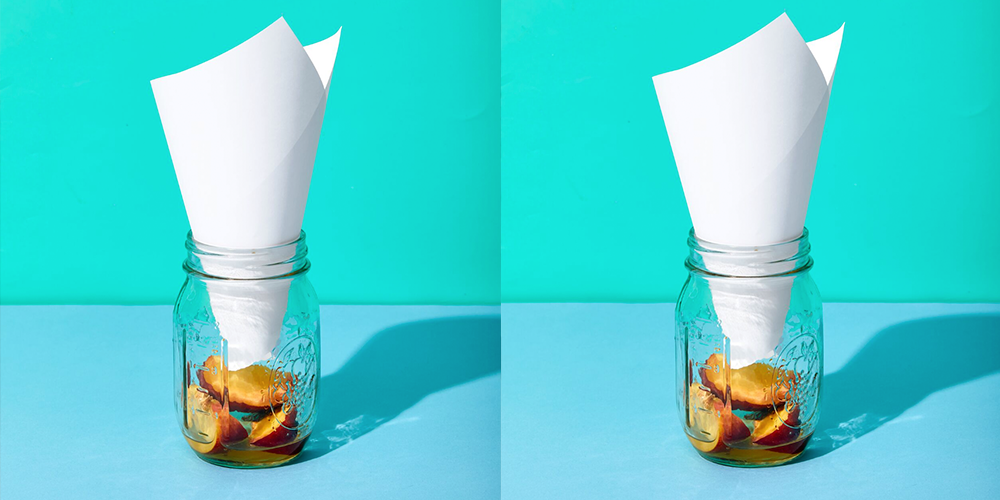
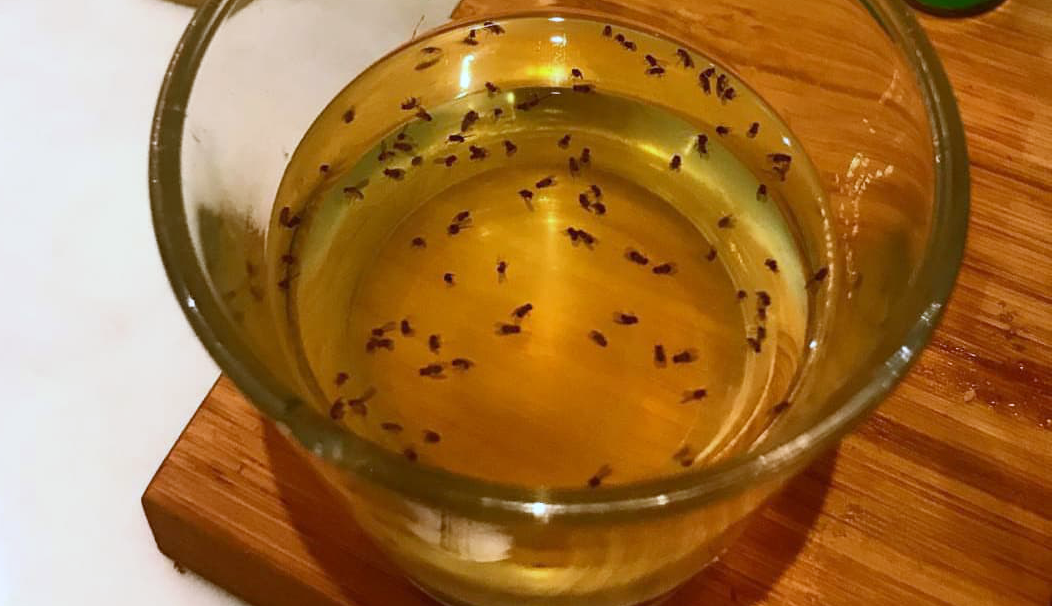





:max_bytes(150000):strip_icc()/freshen-and-unclog-drain-with-baking-soda-1900466-18-1a5b5da01939471ca8f8823865bd1ce8.jpg)
